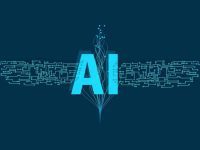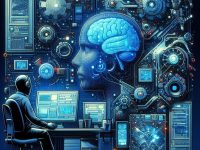What is Artificial Intelligence (AI) and What are the Types of Artificial Intelligence (AI)? – Artificial Intelligence (AI) has been a hot topic in recent years, and for good reason. It is a revolutionary technology that has the potential to change the world as we know it.
AI has already made significant strides in various industries, from healthcare to finance, and it’s only just the beginning. In this article, we will explore the basics of AI and its various types.

Introduction to AI
AI is a branch of computer science that aims to create intelligent machines that can perform tasks that typically require human intelligence. These machines are designed to learn from experience, adapt to new information, and perform tasks that would typically require human intervention. The ultimate goal of AI is to create machines that can think, reason, and learn like humans.
You can also read 20 Types of Technology in the World and Their Explanations
Types of AI
There are various types of AI, each with its unique characteristics and applications. Here are the most common types:
Reactive Machines (Narrow AI)
Reactive machines are the most basic type of AI. They can only react to current situations based on pre-programmed rules. They don’t have the ability to form memories or use past experiences to inform their decision-making. Examples of reactive machines include voice assistants like Siri and Alexa.
Limited Memory (AI with Memory)
Limited memory AI is a type of AI that can store past experiences and use them to make future decisions. These machines can improve their performance over time as they learn from their experiences. A good example of limited memory AI is self-driving cars that use past experiences to navigate roads.
Theory of Mind (AI with Emotions)
Theory of mind AI is the type of AI that can understand human emotions and interact with humans on an emotional level. These machines can perceive human emotions and respond accordingly, making them ideal for applications such as therapy and counseling.
Self-Aware (AI with Consciousness)
Self-aware AI is the most advanced type of AI. These machines have consciousness and can think and reason like humans. While this type of AI is still in the realm of science fiction, researchers are making strides towards developing self-aware AI.
Conclusion
AI is a revolutionary technology that has the potential to change the world in ways we cannot imagine. As we continue to develop AI, we must be cautious and mindful of the ethical implications of this technology. However, the potential benefits of AI are vast, and we can only begin to imagine the possibilities.
FAQs
Q: What are the benefits of AI?
A: AI can help us solve complex problems, automate tedious tasks, and improve the efficiency of various industries.
Q: What are the potential risks of AI?
A: The potential risks of AI include loss of jobs, invasion of privacy, and the development of dangerous autonomous weapons.
Q: What industries are currently using AI?
A: Healthcare, finance, and transportation are some of the industries that are currently using AI.
Q: Can AI replace human intelligence?
A: While AI can perform many tasks that require human intelligence, it cannot replace the creativity, intuition, and empathy that humans possess.
Q: What does the future of AI look like?
A: The future of AI is promising, with endless possibilities for innovation and improvement. However, we must approach AI development with caution and ethical considerations.




